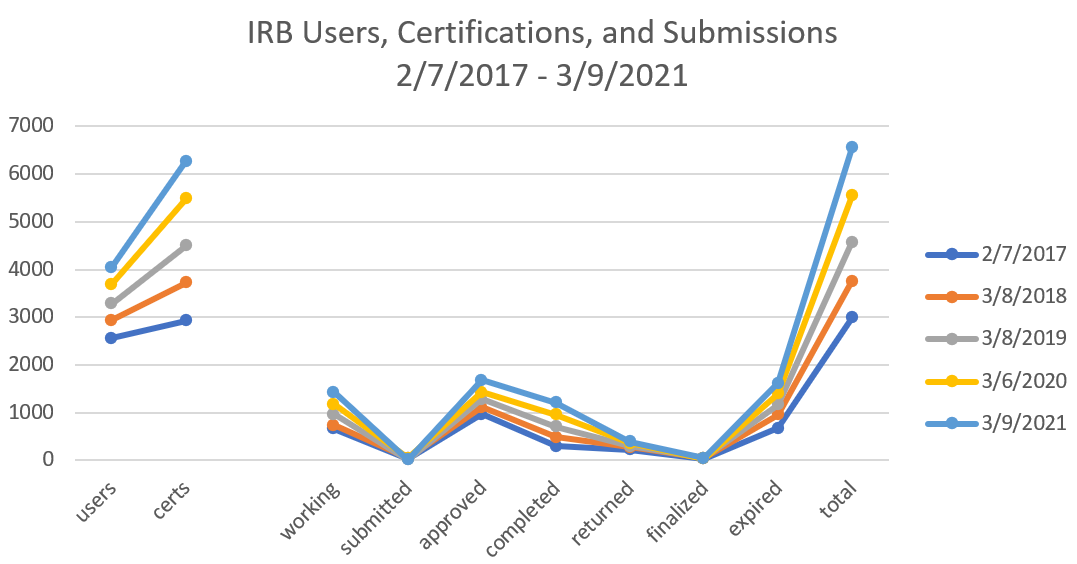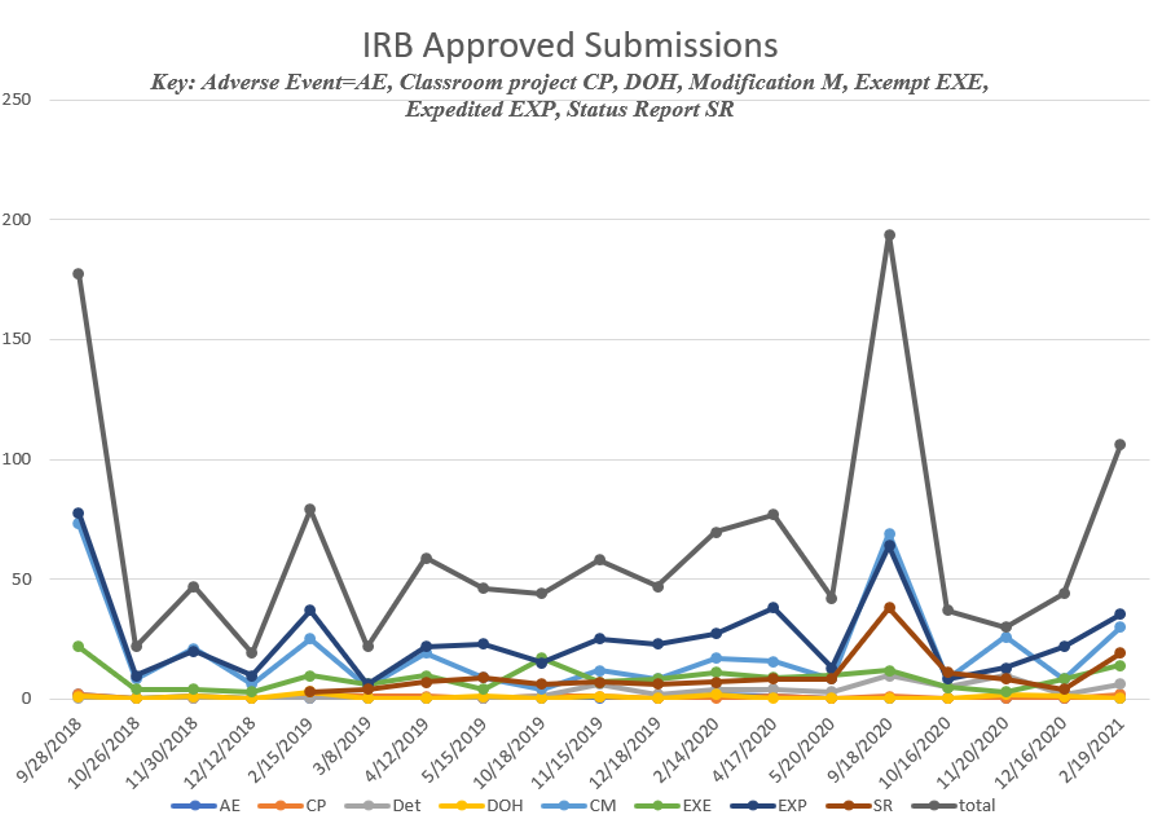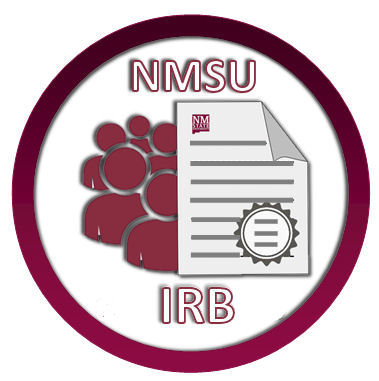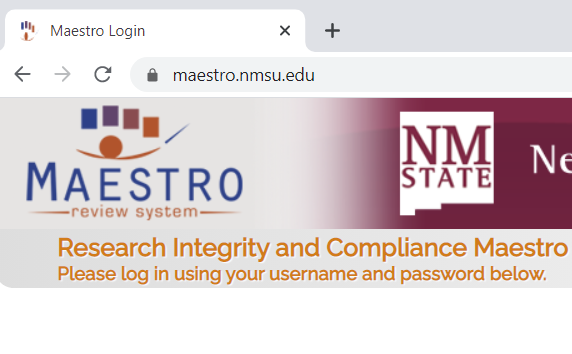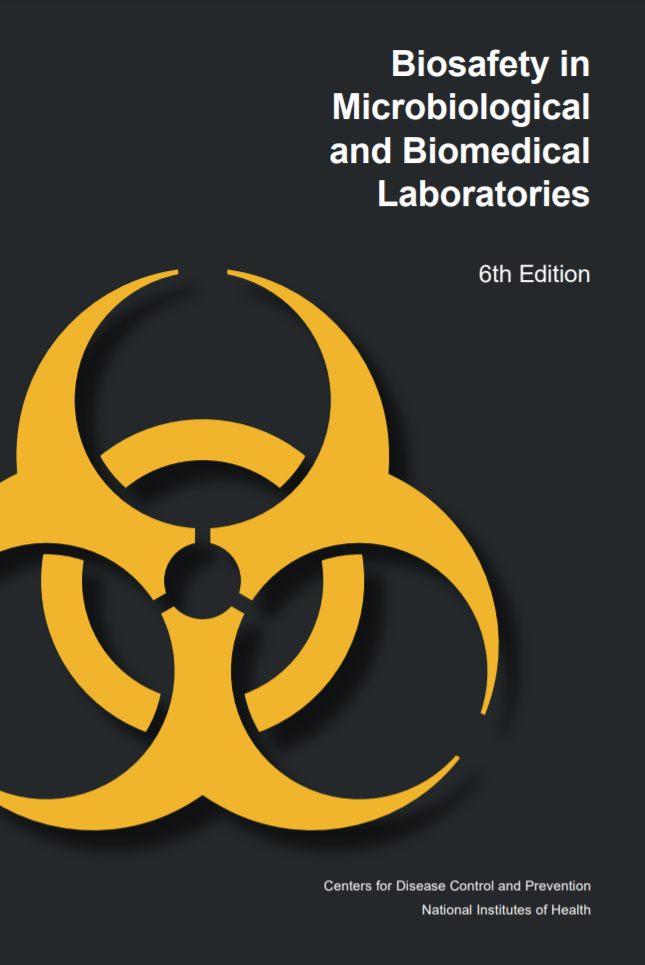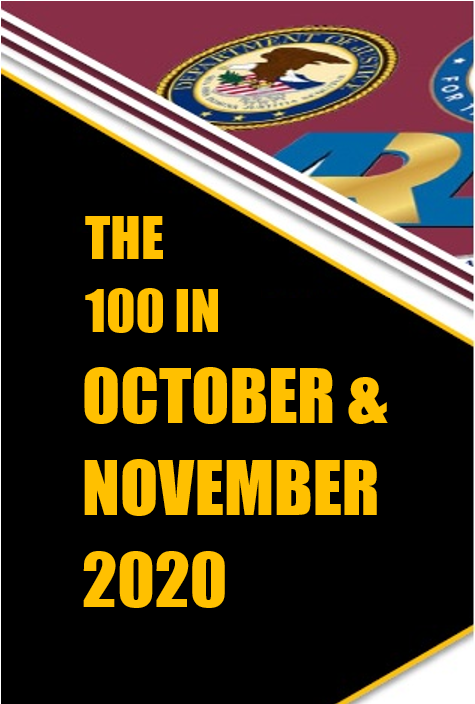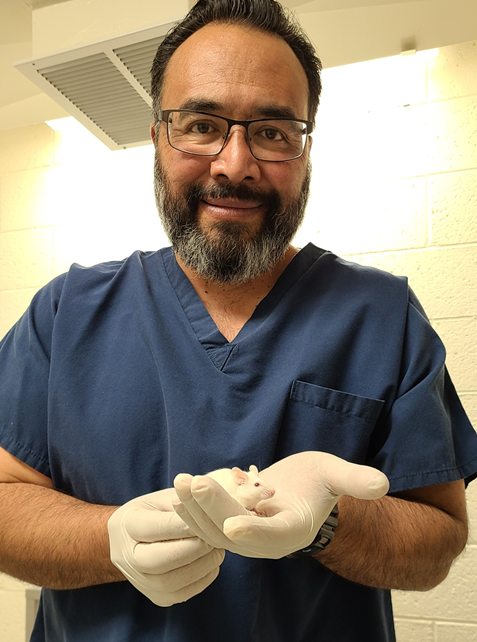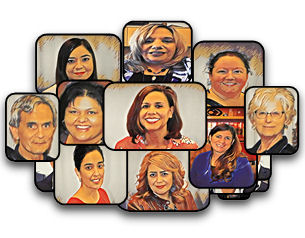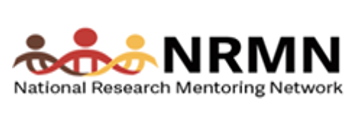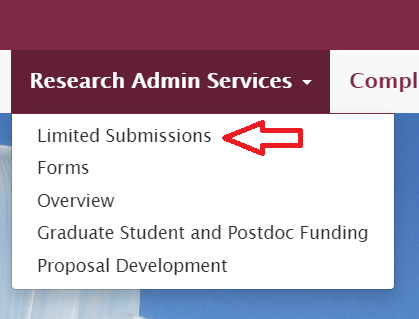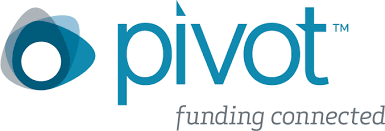 |
|
NMSU Institutional Review Board: A Year Working from Home!By Michelle Gavin, Research Compliance Coordinator, RIC
The IRB committee and compliance office also incorporated many quality improvement activities. The IRB implemented its first customer survey during the week of February 20, 2020 and analyzed the data to identify common themes which are primarily focusing on the compliance IRB website and enhancements or changes to the Maestro forms and system. In the spring/summer of 2020, the IRB appointed 7 new members to the committee and provided IRB and Maestro training. Training, Education, and Outreach has been a key focus this year too. Starting in October 2020, CITI webinar offerings were made available to NMSU’s research community. The Research Integrity Coordinator along with the IRB Chair have had over 100 Zoom meetings with researchers to help them with their IRB submissions and answer questions that they might have related to their research project. They also presented and provided IRB training and information to individuals and classes throughout the institution. The Determination of Human Subject Research form has been incorporated to allow researchers a way to submit their research project via Maestro to have the IRB Chair determine if their project requires IRB review and approval using a more formal mechanism and record. In addition to the above improvement activities, the following data shows the true impact that they are having on the NMSU and affiliated research community which includes collaborations with other institutions and organizations. Since Maestro was deployed on February 27, 2013, this year has seen the most substantial growth in IRB submissions, reviews, approvals and overall turnaround time. The numbers demonstrate the effectiveness of Maestro as well as the support provided by RIC and the IRB to the research community.
The following data shows the last 3 years and the amount of growth overall in the number of users using Maestro, the number of certificates being uploaded into Maestro, and the total number of IRB submissions being processed. In addition, more funded related submissions are requiring IRB attention due to recent funding agency requirements. The current number of users is 4,052 of which 315 are guest account users which are researchers not from NMSU.
RIC and the IRB are here to assist the NMSU research community and invite you to contact us with any questions or assistance you might need. We look forward to seeing the great ideas you have and the research you are involved with here at NMSU. |
|
The Maestro Server Has Moved
By Michelle Gavin, Research Compliance Coordinator, RIC
This is to remind the NMSU community that the Maestro (online review system for processing applications for research activities involving human subjects) Server has moved to be housed at NMSU Information and Communication Technologies (ICT). Maestro’s new website is at https://maestro.nmsu.edu.The old address is no longer available, so please update your bookmarks and contact us at (575) 646-7177 or send an email to ovpr@nmsu.edu if you have any questions.
|
|
The 6th Edition of the Biosafety in Microbiology and Biomedical Laboratories is Now Available
By JoAnne Dupre, Biosafety and Export Control Manager, RIC
The new Biosafety in Microbiology and Biomedical Laboratories (BMBL) provides guidance and best practices for safe handling of biological hazards in biomedical laboratory settings. The new chapters, agent summary statements, and appendices address several biosafety-related topics that have evolved over the past decade:
The full text of the BMBL 6th edition can be accessed online at the CDC lab safety webpage. To order a book for your lab training library, visit CDC INFO On-Demand – Publications, and use the search field to find the publication ID 300859 and instructions. One free copy is available per this request tool. For questions about the BMBL 6th edition and how it applies to NMSU labs, please contact me at (575) 646-4463 or by email at ovpr@nmsu.edu, and Environmental Health Safety & Risk Management office at ehs@nmsu.edu. |
|
Export Control Notice: Federal Prohibitions on Certain Telecommunication and Surveillance Equipment
By JoAnne Dupre, Biosafety and Export Control Manager, RIC
As of August 2020, federal government agencies are not able to contract with universities, companies, and other organizations that make use of certain telecommunications and surveillance equipment manufactured by specific companies that Congress has determined present a risk to secure communications. It is important that university personnel are aware of this prohibition, and take steps so that you do not purchase equipment manufactured by those companies (identified below) for use in university systems.
The relevant prohibition appears in the National Defense Authorization Act for FY 2019, Pub. L. No. 115-232 (NDAA). Specifically, Section 889 of the NDAA restricts the use of “covered telecommunications equipment or services.” Such equipment or services must not be used “as a substantial or essential component of any system, or as a critical technology as part of any system.”
The phrase “covered telecommunications equipment or services” is defined in Section 889 to encompass—
If you happen to have purchased “covered telecommunications equipment or services” from any of these companies, or are aware that covered equipment has been installed in your unit’s IT infrastructure, please send a brief email to infosec@nmsu.edu so that the information security team can help identify alternate solutions to your needs.
You are also invited to contact the Export Control Manager by email to ovpr@nmsu.edu with any questions about this memo and the requirements summarized. Review teams in Research Administration, Purchasing, ICT, and General Counsel have tools and recommendations that can help as you evaluate equipment to purchase for your unique research and creative activities. We encourage you to contact any of these offices with your comments in this critical matter. Your attention to information security is needed and appreciated, as part of NMSU’s efforts in LEADS 2025 to elevate research and creativity, and build a robust university system.
|
 |
Stipend Distribution for 100 in October/November ChallengeBy Alisha Giron, Assistant Vice President for Research
The Office of the Vice President for Research and Dean of Graduate School has distributed stipends to principal investigators (PI) and co-principal investigators (co-PI) who participated in the 100 in October and November Challenge. The incentive program offered a $250 stipend in addition to up to $1000 in indirect cost generated from an award for each eligible PI/co-PI listed in the proposal. All recipients must have met all of the requirements at https://research.nmsu.edu/100inoctober.html and are eligible for just one (1) stipend for this Challenge. Please see your College/Unit business office for issues accessing stipend funds. Should you require additional assistance, please email ovpr@nmsu.edu.
|
|
Research Administration Spotlight: Alfredo Montoya
By Hamid Mansouri Rad, Senior Proposal Development Specialist, RAS
NMSU’s Animal Care Facility (ACF) is a vital component for life sciences research on campus involving vertebrates. Such projects require review and approval by NMSU’s Institutional Animal Care and Use Committee at the proposal stage. In addition, NMSU has to comply with federal regulations in handling and caring for these vertebrates once they arrive at NMSU, which is why operating the ACF requires dedicated and skilled staff to ensure full compliance with federal regulations and to accommodate faculty/principal investigators’ requirements. Alfredo Montoya is responsible for the management of the ACF, ensuring that the animals in the facility can have the highest quality, stress-free life as is possible. Alfredo has a Master’s degree in Animal and Range Sciences and joined NMSU in 2003. Prior to that, he worked for the Southwest BioLabs, a Las Cruces-based research facility that conducts animal testing for pharmaceutical companies. “What I enjoy most about my job is the hands-on matters—taking care of animals and maintaining the facility,” says Alfredo. “What I find most challenging is anything that has to do with finances,” he acknowledges.
Alfredo describes himself as a “huge” boxing and soccer fan. He coaches soccer and is a board member and founding member of the Cruces Fútbol Club, a local soccer club. He is also a member of the Knights of Columbus and plays the guitar and sings in his church choir. Alfredo has 4 children with his wife of 19 years Ms. Monica Montoya, a College Assistant Professor in the School of Social Work at NMSU. Alfredo can be reached at alfredom@nmsu.edu. |
Alfredo Montoya, Manager Animal Care Facility, NMSU |
Principal Investigator Training on March 22, 2021
By Rita Parra, Director of Pre-Award Administration , RAS
Research Administration Services will be offering its biannual Principal Investigator Training on March 22, 2021 at 11:00 am via Zoom. The training is intended to provide a high-level overview to NMSU researchers and staff involved with proposal preparation and submission, as well as award negotiation/acceptance of externally-sponsored grants and contracts. For more information, send email to ras@nmsu.edu. |
|
NEH Solicitations for the Infrastructure and Capacity Building Grants
By Hamid Mansouri Rad, Senior Proposal Development Specialist, RAS
The National Endowment for the Humanities (NEH) has released two solicitations for the Infrastructure and Capacity Building Challenge Grants program. These funding opportunities provide matching funds to increase humanities capacity through capital expenditures or endowments. The two solicitations are for Capital Projects and Digital Infrastructure each having two deadlines in 2021: May 18 and September 28. Applicants may submit draft proposals, by April 6, 2021 and August 17, 2021 respectively to receive feedback from NEH program. NEH will hold a pre-application webinar on March 19, 2021 at 2:00 PM EDT. The link to the webinar is listed in the solicitations. |
|
NIH Offers Data Science for Science Teachers Boot Camp
By Hamid Mansouri Rad, Senior Proposal Development Specialist, RAS
The National Institutes of Health (NIH) Office of Data Science Strategy (ODSS) is offering a Data Science for Science Teachers Boot Camp, an intensive research training course designed specifically for STEM educators working with students in underserved communities (in high schools or post-secondary schools). The goal of this boot camp is to enable educators to learn data science techniques and facilitate integration of this highly desired, cutting-edge skill set in their coursework. The boot camp will be held on July 12-16, 2021. Applicants must be U.S.-based and apply online by April 9, 2021.
|
|
Become A Better Mentor: Faculty Mentor Development Training
By Hamid Mansouri Rad, Senior Proposal Development Specialist, RAS
|
Download the Program Flyer Here. |
Limited Submission List Moved to SharePointBy Hamid Mansouri Rad, Senior Proposal Development Specialist, RAS
Research Administration Services maintains a list of limited submission funding opportunities for NMSU research community. The list is accessible through a link on the Research website, under the Research Administration tab. NMSU users can also access the list directly on SharePoint at https://eltnmsu.sharepoint.com/sites/ResearchCreativity/SitePages/Limited-Submissions.aspx. We encourage NMSU researchers to periodically visit the site and if they are interested in any of the opportunities to please inform us by sending email to ras@nmsu.edu.
|
|
NSF EPSCoR RII Track 4's New Track, Limited SubmissionBy Hamid Mansouri Rad, Senior Proposal Development Specialist, RAS
This is a reminder that solicitation 21-557 for the NSF Established Program to Stimulate Competitive Research (EPSCoR) RII Track 4 includes a new track titled Fellows Advancing Science and Technology (FAST). According to the solicitation, while this track is similar to the regular RII Track 4 in achieving the same goals, RII Track-4:FAST focuses on faculty from eligible institutions to collaborate with researchers at NASA participating research centers.
Since NSF EPSCoR RII Track 4 is a limited submission, we have been keeping track of this opportunity and are already in the process of determining the NMSU applicants for the regular RII Track 4 based on NSF's previous solicitation (20-543). We updated our limited submissions list as soon as the new solicitation (21-557) was released. Those interested in the FAST category, should send email to ras@nmsu.edu as the new solicitation limits us to submit only 6 proposals in this category. The deadline to submit NSF EPSCoR RII Track 4 is April 26.
For more information, please send email to hamid@nmsu.edu. |
|
Pivot Funding Opportunity Database
This is a reminder that in order to assist NMSU faculty and staff in locating external funding opportunities, the OVPRGS has purchased a subscription to ProQuest’s Pivot software available at https://pivot.proquest.com/session/login.
To request a one-on-one or group Pivot training, send email to hamid@nmsu.edu. |
|
Graduate School |
|
Cultural Intelligence (CQ)By Luis A. Vazquez, Regents Professor and Associate Vice President for Research and Graduate Studies
|
|
Need Guidance on Securing External Funding? Contact Me!
If you are an NMSU graduate student or post-doctoral scholar needing guidance on securing external funding, please contact me at fee@nmsu.edu. Please also visit the list of current funding opportunities that I maintain on the research website and let me know if you have any questions.
Chong-Hwey Fee
|
Proposal Development Special Specialist, RAS |
|
Questions and comments regarding NMSU’s Research and Graduate School Digest should be directed to Hamid Mansouri Rad, Ph.D. at hamid@nmsu.edu, (575) 646-6429. |
|
